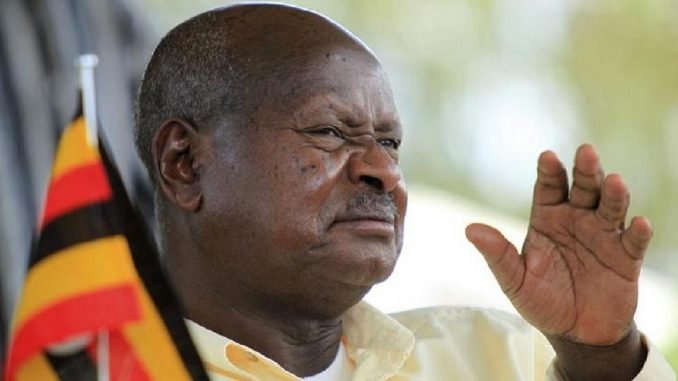
Kampala, Uganda | URN | Amnesty International’s Regional Director for East and Southern Africa, Tigere Chagutah has appealed to President Yoweri Museveni not to assent to the Anti-Homosexuality Bill, 2023 passed by Parliament on Tuesday 21, March 2022 evening.
“President Yoweri Museveni must urgently veto this appalling legislation, which was passed following a rushed vote on Tuesday evening. The law amounts to a grave assault on LGBTQI people and is contemptuous of the Ugandan Constitution,” reads part of a statement issued by Tigere on Wednesday 22, March 2023.
Parliament chaired by Speaker Anita Among approved the private member’s Bill with a death penalty for the offence of aggravated homosexuality. According to the Bill, the offence of aggravated homosexuality is where a victim is a child below 14 or above a person 75 years, a person with a disability or suffers a disability as a result of the sexual act, a person with mental illness and others.
The offence also applies where the offender is a parent, guardian or relative of the victim, the victim contracts a terminal illness as a result of the sexual act, the offender is a serial wrongdoer, an offender is a person in authority over the victim, the offence was committed against a person by means of threats, force, fear of bodily harm, duress, undue influence and others.
Under the passed Bill tabled by Bugiri Municipality MP Asuman Basalirwa, those convicted of attempted aggravated homosexuality will face 14 years once convicted.
The Bill says that a person commits the offence of homosexuality if the person performs a sexual act on another person of the same sex or allows a person of the same sex to perform a sexual act on him or her.
Imprisonment for life is the penalty for a person who commits the offence of homosexuality.
People who publicly declare that they belong to the Lesbian, Gay, Bisexual, Transgender, and Queer– LGBTQ community face ten years imprisonment for engaging in homosexuality.
A child who is convicted for engaging in homosexuality will be conviction to imprisonment for a period not exceeding three years.
According to the Amnesty International Regional Director, the approved law promotes discrimination and hatred.
“In reality, this deeply repressive legislation will institutionalize discrimination, hatred, and prejudice against LGBTQI people, including those who are perceived to be LGBTQI and block the legitimate work of civil society, public health professionals, and community leaders,” says Tigere.

He adds that instead of criminalizing LGBTQI people, Uganda should protect them by enacting laws and policies that align with the principles of equality and non-discrimination enshrined not only in Uganda’s Constitution but also in the African Charter on Human and Peoples’ Rights.
Parliament’s approval of the Anti-Homosexuality Bill, 2023 is the second attempt by Uganda to have stand-alone legislation against homosexuality.
Read Also: Homosexuality is deviation from normal – Museveni
In December 2013, Parliament passed the first Anti-Homosexuality Bill that was tabled by Ndorwa East MP, David Bahati and assented to by President Yoweri Museveni on February 24th, 2014. However, the Constitutional Court annulled the law on August 1st, 2014, on grounds that it had been passed without the requisite quorum.
During Tuesday’s Parliament sitting, Speaker Among carried out a roll-call and ascertained that 389 Members of Parliament were in attendance, 55 of who were on Zoom. The 11th Parliament has 529 Members and the rule of procedure on quorum requires 176 or a third of the MPs to vote for a Bill to be passed.
Deputy Attorney General, Jackson Kafuuzi said that his office made consultations, looked at the Bill, harmonized with the mover and that they are comfortable with the approved piece of legislation.
The approved Bill is to now take on a new process that leads it to assent by the President under Article 91 (3) of the Constitution within 30 days after a Bill is presented to him or return it to parliament with a request for reconsideration or notify the Speaker in writing that he refuses to assent.
Before the Anti-Homosexuality Bill reaches President Museveni’s table, the process involves the preparation of copies and capturing all amendments made by the House by Parliament’s Department of Legislative and Procedural Services. A harmonized copy is then signed by the Clerk to Parliament and forwarded to the Head of State.



